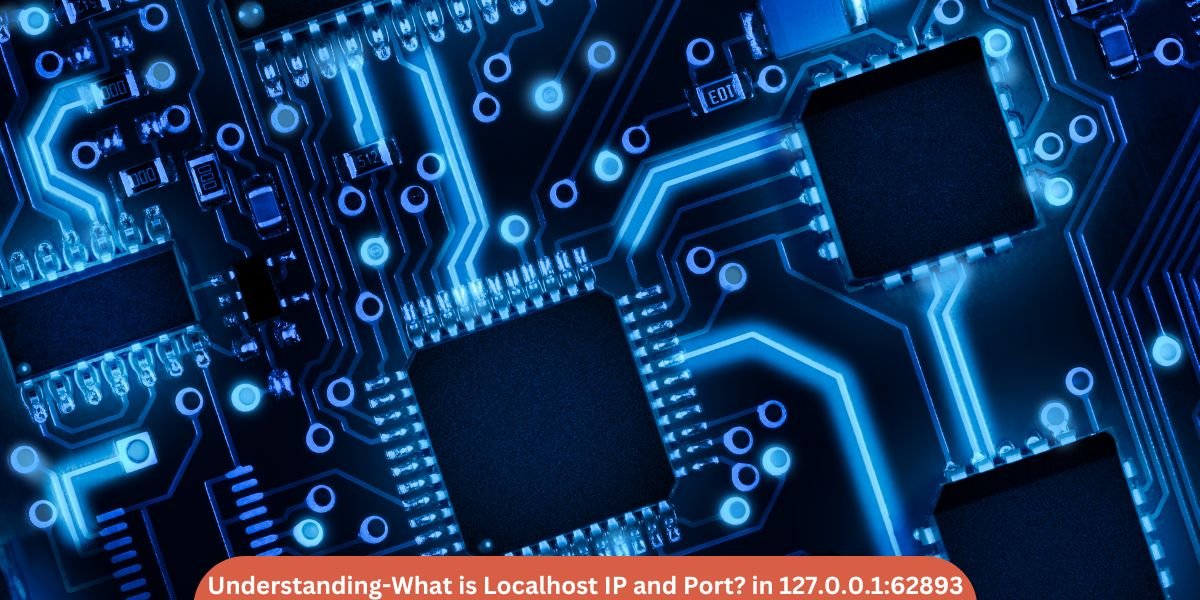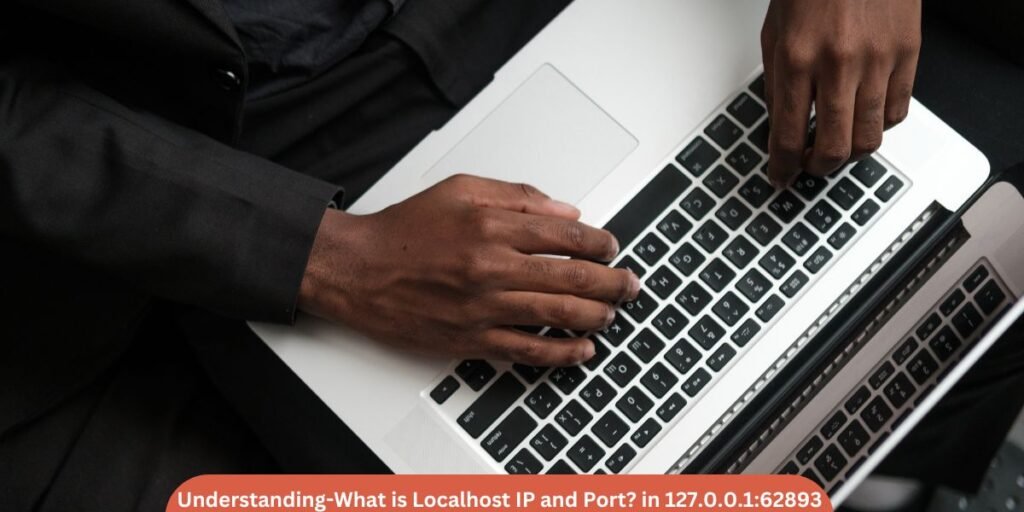
Understanding-What is Localhost IP and Port? in 127.0.0.1:62893
When dealing with local networks, especially in development environments, you may come across the IP address 127.0.0.1 and a specific port number like 62893. This combination is a fundamental part of network testing and application development, allowing services to run without exposing them to the public internet. Understanding this address and port can help both developers and system administrators manage local services efficiently.
What is 127.0.0.1?

The IP address 127.0.0.1 is commonly referred to as the localhost or loopback address. It is used to establish an IP connection to the same machine or computer you are currently using. Essentially, any communication sent to 127.0.0.1 is looped back to the local machine. This feature is essential for testing network applications and services before they are deployed publicly. Unlike public IP addresses, 127.0.0.1 is private, meaning data sent to it stays within your system.
Read also: Miflow Login | Sahaj Login | Zimyo Login | Jaidyn Alexis’s Age
Localhost and Loopback Functionality
The localhost IP address is useful for simulating a network environment without needing external devices. When software is in the testing phase, developers frequently use 127.0.0.1 to ensure that all local network requests are handled within the same machine. This can help debug applications before moving them to live servers.
What is Port 62893?
In networking, port numbers identify specific services or applications on a computer. Port 62893 can be one of many ports used by different services on your local machine. Pairing an IP address with a port number allows for multiple applications to run on the same system without conflicting.
Common Uses of Port 62893
While port 62893 might not be a standard port, developers often assign arbitrary ports like this one for custom applications or local testing. The flexibility of using non-standard ports means developers can run multiple services simultaneously, each on a different port.
Read Also: TWStalker | geekzilla.tech Honor Magic 5
Why Use 127.0.0.1:62893 Together?

By combining 127.0.0.1 with port 62893, developers can isolate applications and test how they function in a controlled environment. This setup ensures no external access, preventing security breaches during development.
Security Considerations for 127.0.0.1:62893
Although 127.0.0.1 is local, developers must ensure that services running on it are properly secured. Even though the address is not accessible from the public internet, internal security vulnerabilities can still pose a risk.
Read Also: Naz Tricks | Ok Jaat.in | MyUday.Lupin.com | Sarkarisangam.com
Troubleshooting Issues with 127.0.0.1:62893
While 127.0.0.1 is stable, issues can arise if network settings are misconfigured. For example, firewall rules might block access, or software may be improperly configured to listen on the wrong port.
Network Connectivity Problems
If you’re unable to connect to 127.0.0.1:62893, the first step is checking if the correct port is open. Use tools like netstat or lsof to confirm whether the service is running and listening on the right port.
How to Use 127.0.0.1:62893 in Development

Developers often use 127.0.0.1:62893 to simulate how their applications will behave in a production environment without exposing the system to outside users. This setup allows for testing web servers, APIs, and databases locally.
Local Web Servers
One of the most common uses for 127.0.0.1:62893 is hosting a local web server. Tools like Apache or Nginx can be configured to run on this IP and port combination, allowing developers to preview their websites before going live.
Read Also: Edu.ayovaksindinkeskdi.id | Webclassplus.com Login | Freezenova Games | IPCainterface Login
Conclusion
127.0.0.1:62893 is a critical element for local network environments, particularly for developers and system administrators. By combining the localhost IP address 127.0.0.1 with a specific port number like 62893, users can safely test applications, simulate server environments, and troubleshoot network issues without affecting external systems. This setup allows for efficient and secure testing in a controlled environment, reducing the risk of vulnerabilities. Understanding how to utilize 127.0.0.1:62893 effectively is essential for anyone working with networking, software development, or system administration.
FAQ About 127.0.0.1:62893
1. What is the purpose of 127.0.0.1:62893?
127.0.0.1:62893 is a combination of a localhost IP address and a specific port number, often used in local network testing and application development. It helps developers run and test services securely on their local machines.
2. Can 127.0.0.1 be accessed from the internet?
No, 127.0.0.1 is a loopback IP address used exclusively for local connections. It cannot be accessed externally from the internet, which ensures that data sent to this IP remains within the local machine.
3. Why would I choose port 62893?
Port 62893 is an arbitrary, high-numbered port. Developers often choose such ports to avoid conflicts with commonly used or reserved ports. It provides flexibility when running multiple services locally.
4. What are some common issues with 127.0.0.1:62893?
Common issues include misconfigured firewall settings, incorrect port binding, or software not listening on the right port. These problems can usually be solved by checking firewall rules and ensuring the service is configured to use the correct port.
5. Can I use any other port with 127.0.0.1?
Yes, you can use any available port number with 127.0.0.1. Port numbers between 1024 and 65535 are generally open for developers to assign to their local services.

